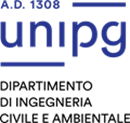Study-unit MATHEMATICAL ANALYSIS I
| Course name | Civil and environmental engineering |
|---|---|
| Study-unit Code | GP004383 |
| Curriculum | Comune a tutti i curricula |
| Lecturer | Gianluca Vinti |
| Lecturers |
|
| Hours |
|
| CFU | 9 |
| Course Regulation | Coorte 2022 |
| Supplied | 2022/23 |
| Supplied other course regulation | |
| Learning activities | Base |
| Area | Matematica, informatica e statistica |
| Sector | MAT/05 |
| Type of study-unit | Obbligatorio (Required) |
| Type of learning activities | Attività formativa monodisciplinare |
| Language of instruction | ITALIAN |
| Contents | Set theory. Functions. Extreme upper and lower, the real extended and monotonicity. Elements of topology. Concept of limit: calculation and properties. Infinite and infinitesimal. Continuity and main results on continuous functions. Numerical series and power series. Derivation: geometric meaning, calculation and main results. Fundamental theorems on differentiable functions. Study of the graph of a function of one real variable. Taylor's formula and Taylor series expansions. Convexity. Riemann Integration: definition, geometric meaning, calculation rules and main results. |
| Reference texts | 1) Calogero Vinti: "Lezioni di Analisi Matematica, Vol I" Galeno Editrice 2) Online exercises |
| Educational objectives | The course provides knowledge of the main concepts of mathematical analysis and the mastery in the management of the calculation. The main knowledge (descriptor Dublin 1) will be acquired: • knowledge of the concept of function and of calculating the limits of functions together with the basic concepts of topology; • knowledge of the differentiability of functions of one variable and all those concepts that enable the student to carry out the study of function; • Knowledge of numerical series, functions and series expansions of functions; • knowledge of the notion of integral,main results and integral calculus. The main skills acquired (ability to apply their knowledge, descriptor Dublin 2, and to take with independent judgment the appropriate approach, Dublin descriptor 3) will be: • ability to solve equations, inequalities, limits, derivatives, integrals, behavior of series and series expansions of functions; • ability to develop an argument that leads the student to identify the methods of solving the problem; • ability to identify a common logical-deductive methodology in various topics to enable it to identify the approach to be followed. |
| Prerequisites | General notions of the sets theory, equations and inequalities of first and second grade, elementary functions, trigonometric functions, polynomial division. |
| Teaching methods | The course is organized as follows: 1) Lectures on all topics of the course; 2) Classroom exercises. |
| Other information | -Attendance is recommended for all lessons. -Students in the course will have hours to deepen the application of theoretical arguments for the solution of practical exercises. |
| Learning verification modality | Written and oral examination. The verification of the educational objectives of teaching (examination) includes a written test and an oral examination. The written test will be held on the dates set out on the link of examinations of the relative degree. The written test, during 3 hours, consists in solving three problems regarding main course topics. The test is intended to verify: i) the ability to understand the problems proposed during the course, ii) the ability to correctly apply the theoretical knowledge (descriptor Dublin 2), iii) the ability to formulate the appropriate approach for the solution of the problems (descriptor Dublin 3), iv) the ability to communicate effectively in writing and relevant (descriptor Dublin 4). The oral examinations, consist of a discussion no longer than 40 minutes aimed to determine: i) the level of knowledge of the theoretical content of the course (descriptor Dublin 1), ii) the level of expertise in exposing their ability to argument the topics of the course in a logical-mathematical language (descriptor Dublin 2), iii) the 'independence of judgment (descriptor Dublin 3) to argue in an appropriate language the posed questions. The oral examinations also aim to verify the student's ability to expose properties of language questions proposed by the Commission, to support a dialectical relationship during discussion and to prove logical deductive capacity and synthetic exposition (descriptor Dublin 4). The final evaluation will be made by the Commission taking into account also the evaluation of the written test. For information on support services for special needs students, please visit the page https://www.unipg.it/en/international-students/general-information/facilities-for-special-needs-students . In any case, the teacher is available to personally evaluate, in specific cases, any compensatory measures and / or personalized paths in the case of students with special needs. |
| Extended program | Set theory: definitions, operations between sets, Cartesian products. Functions: definitions, injectivity, surjectivity, one-one functions, inverse functions, composition. Direct and inverse image, restriction and prolongation. Extreme upper and lower, the real (IR) extended. Monotonicity of functions. Elements of topology: bowls and intervals, open and closed sets, interior points, accumulation, isolated, border and adhesion point. Compact and connected sets. Topology of the real extended. Concept of limit: calculation and properties. Infinite and infinitesimal. Continuity and main results of continuous functions. Numerical series and power series. Derivation: geometric meaning, calculation and main results. Fundamental theorems on differentiable functions. Study of the graph of a function of one real variable. Taylor's formula and Taylor series expansions. Convexity: properties and applications. Riemann integration: definition, geometric meaning, calculation rules and main results. |


